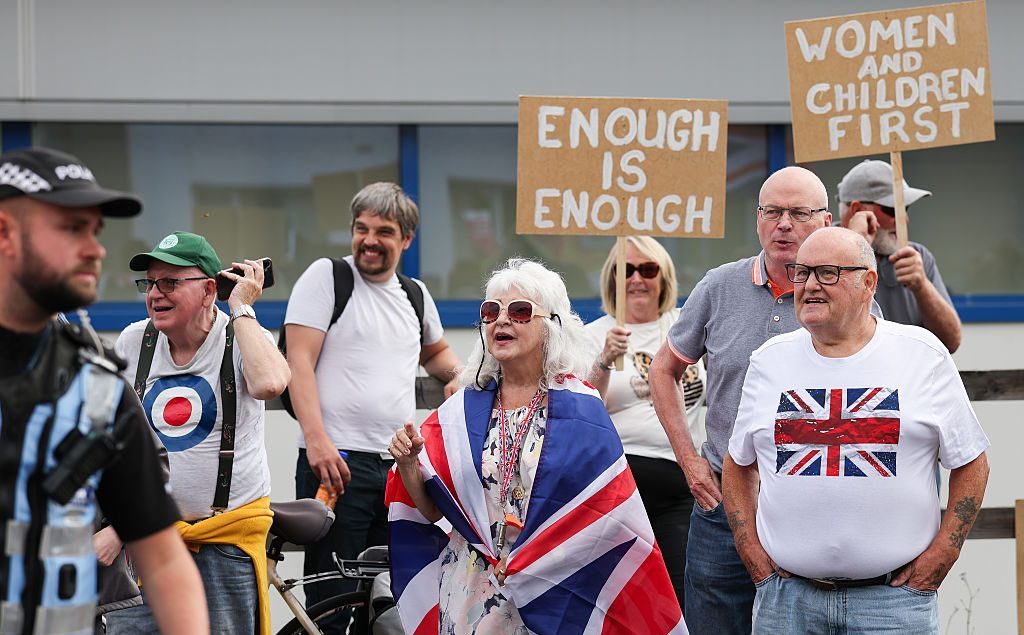Scotland’s most populous city, it appears, is tired of being a sanctuary for refugees. The SNP leader of Glasgow City Council, Susan Aitken, has condemned UK asylum policy as a “machine that creates homeless refugees”. That is a sentiment one might have expected Nigel Farage to utter. Except the SNP council insists it is all the fault of Westminster for not giving Glasgow more money to cope with the flood of refugees entering the city. Of 6,057 asylum seekers in receipt of support in Scotland, some 4,193 are in Glasgow.
Scotland has a statutory obligation to house homeless people regardless of their circumstances. In England, meanwhile, asylum seekers are only housed immediately if they have “priority need” — that is, if they are families, pregnant women or people with special needs. Aitken says this is why many single men are coming to Glasgow and expecting to be housed. The other reason is simply that Glasgow has been boasting for years that it welcomes asylum seekers. It agreed to become a Home Office-approved “dispersal city” back in 1999, and was the only one in Scotland until 2022. Now Keir Starmer’s government is accelerating the processing of asylum seekers, more are being sent north.
But Glasgow politicians cannot expect to be congratulated for having the most progressive homelessness policy in the UK and being a dispersal city for refugees, and then complain that they are the wrong kind of refugees. Nor can they start talking about asylum seekers being a risk to “social cohesion” and then condemn “far-Right” demonstrators in nearby Falkirk for saying much the same.
UK Immigration Minister Angela Eagle, has thus far given short shrift to Glasgow’s demand for more cash. Homelessness is the responsibility of the Scottish Government, as is paying for it. Scotland benefits from public spending that is more than 20% higher than in England thanks to the Barnett Formula. But First Minister John Swinney seems reluctant to bail out his largest city from a financial crisis of its own making.
Housing homeless refugees is expected to cost Glasgow City Council £66 million next year. At present, 44% of all people presenting as homeless to the council come from refugee households. Refugees also account for over half of all temporary accommodation, while 60% of children in temporary accommodation are from refugee families.
The council is clearly worried that this influx of asylum seekers is unsustainable. But it is hoist with its own multicultural petard. “We will continue to believe that asylum dispersal is good for our city,” says Aitken, “but the system [Eagle is] presiding over is damaging social cohesion here.” This is hardly different from the language used elsewhere in Britain by opponents of mass immigration.
Yet the SNP keeps insisting that it wants much more immigration in order to support Scotland’s dependent population. The country is ageing faster than the rest of the UK. Migration to Scotland has been minimal in past decades, and the country remains 93% white according to the most recent census. That demographic has been attributed to factors such as the lack of adequate jobs and the demanding Scottish climate. The SNP wants a special visa system to allow more migrants to enter Scotland. But it does not appear to want to bear the cost of housing them.
There are also signs that Scots are less keen on mass migration than the SNP would like them to be. Support for Farage’s Reform UK has risen sharply in the past two years, and the anti-immigration party is expected to have a bloc of around a dozen MSPs in Holyrood after next year’s elections. Over the weekend, there were angry clashes in Falkirk between anti-immigrant and anti-racism demonstrators outside the former Cladhan Hotel, which houses 50 asylum seekers.
The Left-liberal cadres of “civic Scotland” are increasingly worried that Scots may not be so different from the English after all when it comes to immigration. Glasgow City Council is now threatening to stop accepting asylum seekers altogether. Perhaps the city is not such a sanctuary after all.
